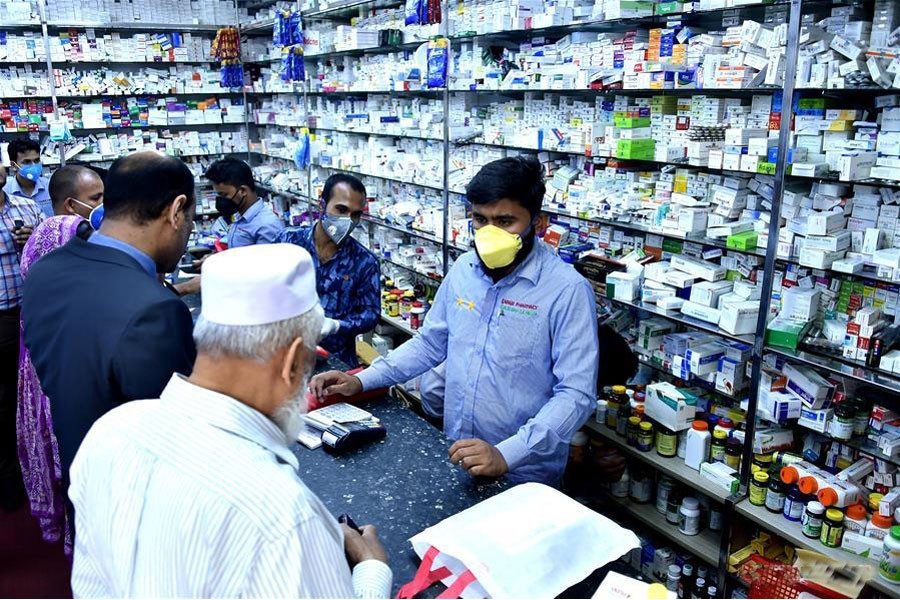Bangladesh may take pride in exporting pharmaceutical products to many countries. Though the amount of exports is still small, it has been increasing over the years. For example, in the last fiscal year (FY22), the country exported pharmaceutical products worth US$189 million, recording around 11.70 per cent growth over $169 million in FY21. There are 292 registered pharmaceutical companies in the country, of which 20 lead both the local market and export earnings.
Drug stores or retail outlets are also increasing annually to distribute pharmaceutical products, including drugs across the country. Almost every city has several big and air-conditioned outlets along with tiny ones. According to the drug administration statistics, there are some 155,043 registered allopathic retail pharmacies in the country, which include some 200 model medicine shops and 160 model pharmacies.
A large number of retail drug outlets have made the necessary and over-the-counter medicines readily available, even in many remote areas. The indispensability of retail drug outlets was felt during the Covid-19 pandemic. It was proved that these stores operate in the frontline of any disease's outbreak. Generally, the druggists or retailers of medicinal drugs play an essential role by helping reduce the burden on medical facilities and providing advice and primary treatments.
There are, however, some flip sides to the growing number of retail drug stores. A large number of unregistered or unauthorised outlets are also there. At a question and answer session in national parliament last year, the health minister said there were 12,592 unlicensed pharmacies in the country. It is a gross underestimate, no doubt. Several studies indicate that the number of unregistered pharmacies is not fewer than 0.1 million in the country, and many of these stores use fake licences. So, patients going to these outlets and purchasing medicines are at risk of consuming fake medicine.
In many cases, even after knowing that a drug store has no licence, local people have no option but to go there. Nevertheless, the problem of fake medicine is not exclusively related to unregistered drug stores. Even some registered drug outlets are not free from fake medicine due to a lack of proper check and preservation systems.
Even a more worrying aspect of the rise in drug stores is that it indicates a broader health problem in the country. Though no one is entirely immune from disease and sickness, there is a growing tendency to consume over-the-counter or non-prescribed medicines by many for instant relief and remedy from illness. Unhealthy lifestyles also compel people to become dependent on physicians and drugs. Food adulteration coupled with air and sound pollution is the main reason for not developing sufficient internal disease-resistant capacity in the body. Then there is various psychological stress of daily life.
So, the health-related problem in the country is deep-rooted, and a large number of retail drug stores is a critical indicator of this connection. It is not a good sign that every corner of the country has a retail drug store. Instead, it indicates that the nation's primary healthcare and nutrition are problematic. A healthy nation doesn't need too many retail pharmacies or drug stores.


